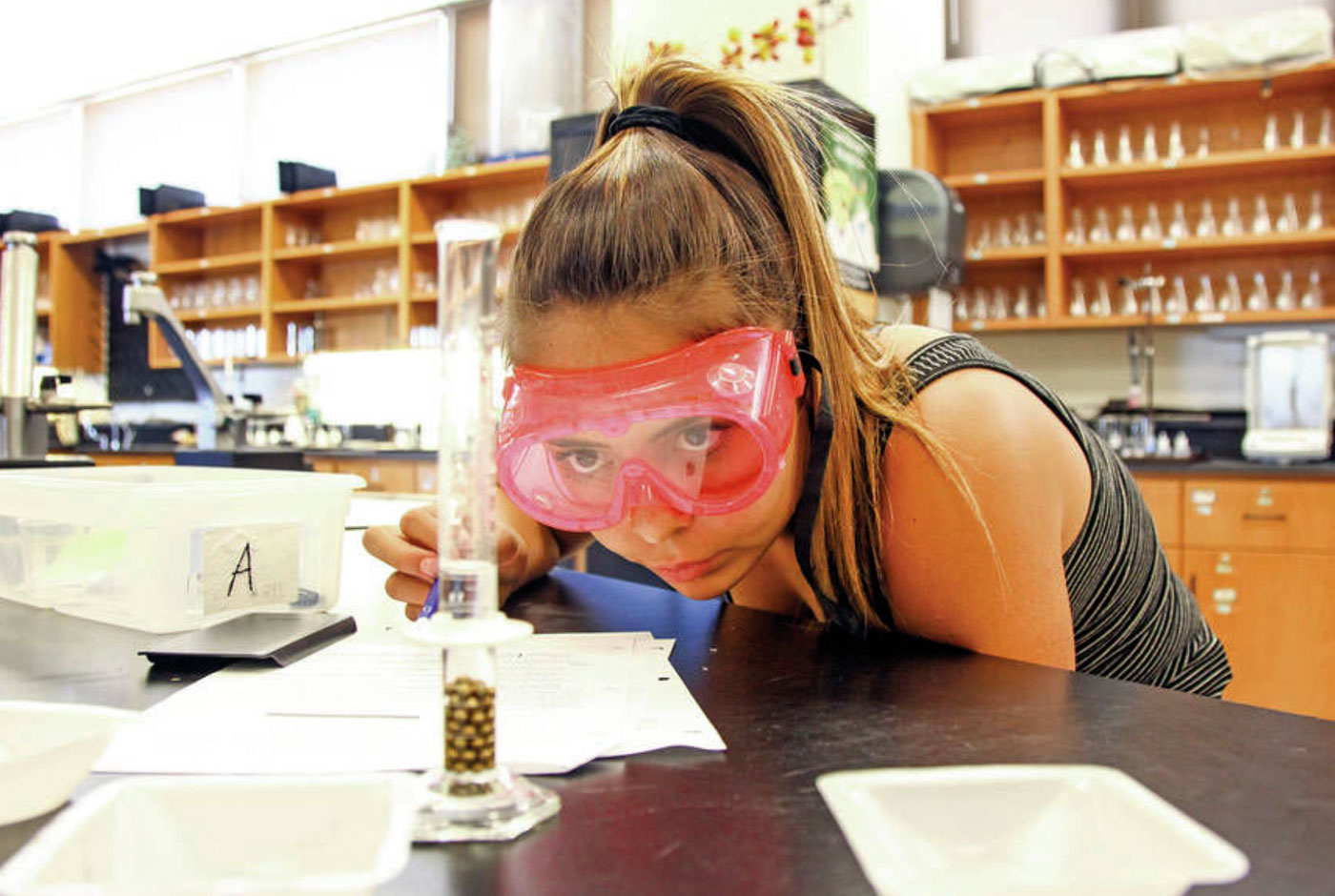Photo: Gabriela Campos, Santa Fe New Mexican
By Robert Nott | The New Mexican | Sep 19, 2017
New Mexico’s dramatic overhaul of science education standards, which is drawing criticism from across the state and around the nation, is “troubling,” Superintendent Veronica García told Santa Fe school board members Tuesday.
Reading from a prepared statement, García said the state Public Education Department has “omitted key concepts, most notably, climate change and evolution.”
“I believe we are doing our students a disservice by omitting these topics,” she said, “and essentially denying them an opportunity to explore these issues in an unbiased manner.”
Garcia said the school district will convene a science education task force to discuss implications of the proposed standards and present that group’s recommendations to the school board for discussion.
But board member Steve Carrillo wanted to go further, calling for a staged rally at the Public Education Department headquarters in Santa Fe on Sept. 27, one conducted in the spirit of the “snow day” held earlier this year when the district canceled classes and at least 1,500 educators, parents, students and supporters showed up at the Capitol to urge Gov. Susana Martinez and lawmakers to avoid further cuts in public education funding.
Carrillo said the proposed standards are “potentially a very devastating move for our state.”
“Why would any high-tech company on earth want to send their company to Santa Fe public schools if we are not going to be teaching these things?” he said.
But other board members did not go for Carrillo’s protest idea, saying there are better ways to address the problem, including adopting a resolution criticizing the new standards.
García is not the only one questioning the state’s proposal, which the education department posted on its website last week. Scientists and educators from around the country have been decrying it as well, saying it gives teachers wiggle room to not teach students about evolution and dilutes the influence humans have on both climate change and the environment.
For example, Glenn Branch, deputy director for the California-based nonprofit National Center for Science Education, said the changes “water down the treatment of evolution and the impact of climate change,” possibly because those responsible for creating the changes “are dubious, skeptical or worried about those issues being taught in public schools.”
The new standards, for example, eliminated the requirement to “Describe how human activity impacts the environment.” The phrase “rise in global temperatures” was changed to “fluctuation in global temperatures,” suggesting there is no increase in global warming.
The new standards also remove any reference to Earth being about 4.5 billion years old, which critics say is a nod toward creationists who believe God created Earth about 10,000 years ago.
Mother Jones magazine ran a piece on the new science standards last week under the headline, “New Mexico doesn’t want your kids to know how old the Earth is, or why it’s getting warmer.”
Gwen Warniment, K-12 program director for the nonprofit Los Alamos National Laboratory Foundation, which supports inquiry science methods in the classroom and supports teachers with professional development, told the board that the foundation opposes the new standards.
“We represent an organization that is grounded in science,” she said. “We can’t in good conscience fully support the way they [the standards] are proposed now.”
Warniment, a former science teacher for the school district, also told the board that the state has not yet laid out a plan for implementing the new standards. Nor has the Public Education Department said whether the implementation of the new standards will cost money or how the state will pay for it.
The Public Education Department’s proposed standards are based somewhat on the Next Generation Science Standards that a number of states have adopted.
When the state posted the proposed standards, Deputy Secretary of School Transformation Debbie Montoya said, “As science, technology and engineering advance in concert with our business and industry partners, New Mexico is working hard to ensure that children have access to the most rigorous standards and assessments while also expanding science resource and opportunities for schools and educators.”
The Public Education Department has scheduled a hearing to receive public input on the proposal from 9 a.m. to noon Oct. 16 in Mabry Hall at the Jerry Apodaca Education Building, 300 Don Gaspar Ave.
If the state approves the standards, they will go into effect in July.
See the original article
